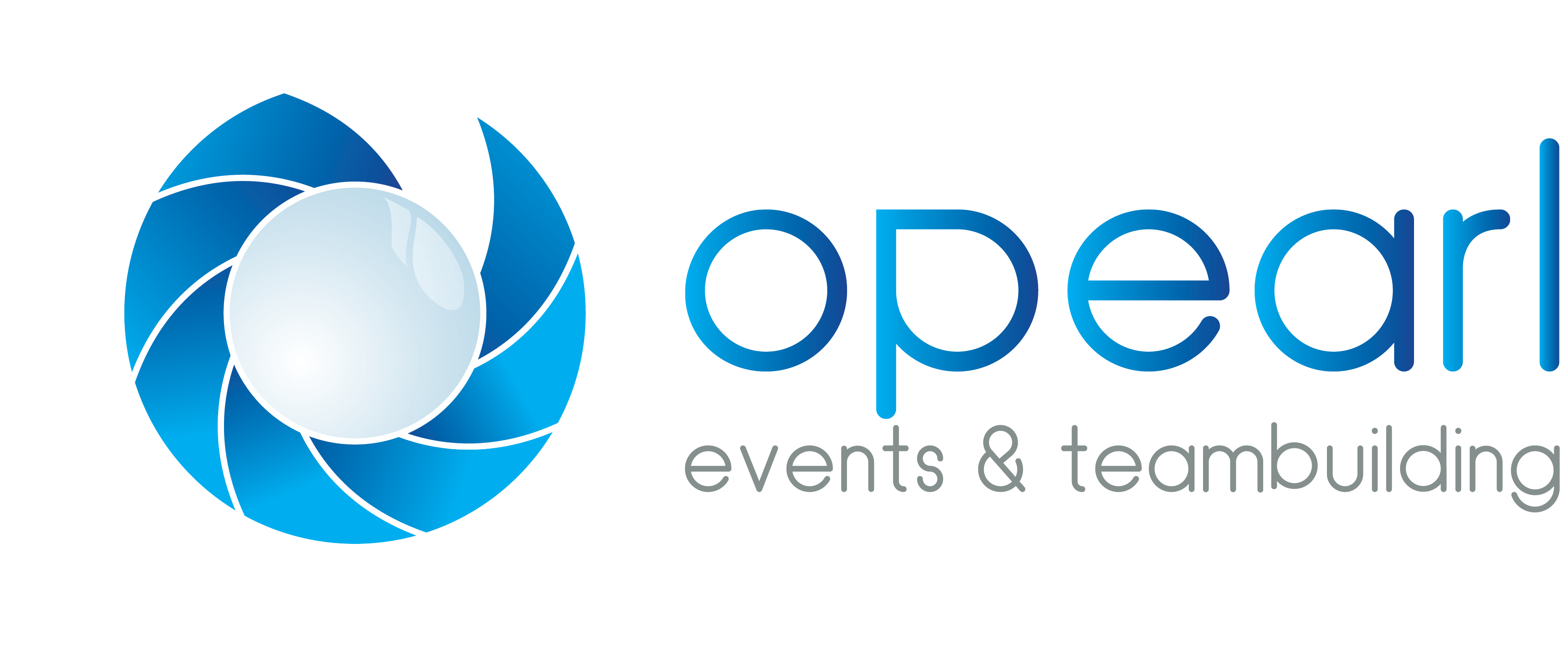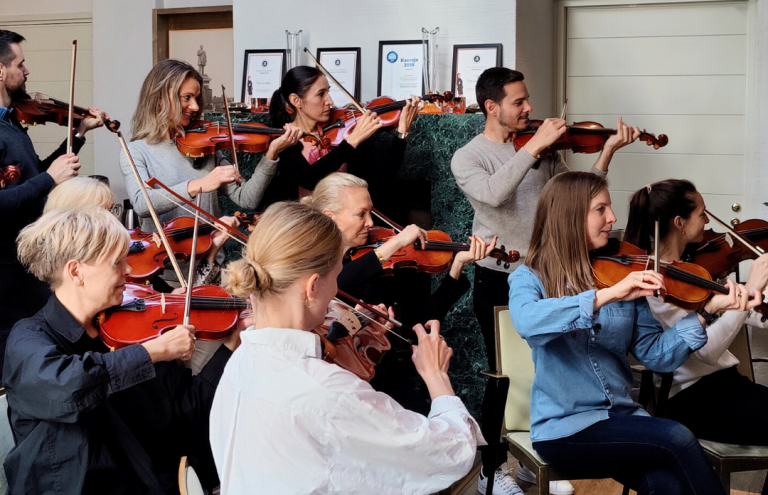Introduction
Sales teams are a crucial component of any business's success, as they are responsible for generating revenue and driving growth. However, the success of a sales team relies heavily on the strength of their collaboration and communication skills. This is where team building for sales teams comes in.
Teambuilding is the process of bringing together individuals to work collaboratively towards a common goal. For sales teams, this means creating an environment that fosters communication, trust, and cooperation to achieve better results.
In this blog, we will explore the importance of team building for sales teams and provide practical strategies and activities to help sales teams improve their collaboration skills and drive better results. From building trust and improving communication to identifying and leveraging individual strengths, we will cover everything you need to know to create a successful sales team through team building.

Benefits of Team building for Sales Teams
Sales teams play a critical role in driving business success. They are responsible for generating revenue, building relationships with customers, and driving growth. However, in order to achieve their goals, sales teams must work together effectively. This is where teambuilding comes in.
Teambuilding is the process of bringing together a group of individuals with a common goal and facilitating their collaboration and cooperation. In the context of sales teams, team building is essential for achieving success. It allows team members to work together more effectively, communicate better, and ultimately drive results.
There are many benefits to team building for sales teams. Perhaps the most obvious is increased collaboration. When team members are able to work together more effectively, they are able to share ideas, leverage each other's strengths, and overcome challenges more easily. This leads to better results and a more productive team overall.
In addition to collaboration, team building also helps to improve communication. Sales teams that communicate well are better able to understand each other's needs, anticipate challenges, and work together to overcome them. This leads to better customer relationships and more successful sales outcomes.
Overall, the benefits of team building for sales teams are clear. In the next section, we will explore some specific examples of how team building can drive results for sales teams.
Strategies for Team building in Sales Teams
Benefits of Teambuilding for Sales Teams
Teambuilding can significantly improve sales team performance by promoting trust, communication, and collaboration. When sales team members work together, they can leverage each other's strengths and address individual weaknesses. Additionally, team building can improve team morale, reduce stress, and boost job satisfaction. Improved communication between team members can lead to more effective problem-solving, increased productivity, and a higher level of customer satisfaction.
Strategies for Teambuilding in Sales Teams
Teambuilding can address common challenges faced by sales teams, such as a lack of cross-functional collaboration, poor communication, and low morale. Some strategies for team building in sales teams include regular team meetings, establishing team goals and objectives, encouraging cross-functional collaboration, and providing opportunities for team members to share their ideas and experiences. Other effective team-building activities for sales teams include team-building exercises, role-playing, brainstorming sessions, and sharing success stories.
Regular Team Meetings
Regular team meetings are essential for sales teams as they provide an opportunity for team members to share their successes, challenges, and ideas. Meetings can also be used to set and review team goals and objectives, discuss upcoming projects, and ensure everyone is on the same page. Regular team meetings can also help build a sense of community and promote trust among team members.

Cross-Functional Collaboration
Encouraging cross-functional collaboration can help sales teams work more effectively with other departments, such as marketing, product development, and customer service. This can lead to a better understanding of customer needs and preferences, more effective problem-solving, and increased productivity. Cross-functional collaboration can also help team members build relationships outside of their immediate team and develop a more comprehensive view of the organization.
Team-building Exercises
Team-building exercises can be an effective way to improve communication, collaboration, and morale among sales team members. These exercises can include problem-solving challenges, outdoor activities, and virtual team-building exercises. Team-building exercises can also help team members get to know each other on a personal level, which can lead to better communication and collaboration.
Team building Activities for Sales Team
- Role-playing exercises: Role-playing exercises are a great way to improve sales team communication and collaboration. They can help sales team members practice different sales scenarios and refine their sales techniques.
- Collaborative goal-setting: Collaborative goal-setting involves setting sales goals as a team and working together to achieve them. This can help build a sense of teamwork and create a shared sense of purpose among team members.
- Sales training sessions: Sales training sessions can be an effective team-building activity for sales teams. They can help team members learn new sales techniques and strategies, while also providing an opportunity for team members to collaborate and share ideas.
- Sales competitions: Sales competitions can be a fun and effective way to build camaraderie and motivate sales teams. By creating friendly competition, sales team members can push themselves to achieve more and build a stronger sense of teamwork.
- Sales team outings: Sales team outings can be a great way to build camaraderie and strengthen team bonds. This can include activities like team dinners, happy hours, or team-building exercises like escape rooms or paintball.
Team Communication and Collaboration
Explanation of how communication and collaboration are key to successful sales team performance
Effective communication and collaboration are vital to the success of any sales team. A sales team that operates like a well-oiled machine is more likely to meet its targets and exceed its goals. Effective communication ensures that team members understand their roles and responsibilities, the goals of the team, and how they can contribute to the team's success. Collaboration allows team members to work together to identify opportunities, develop solutions, and achieve objectives that would be difficult or impossible to accomplish on their own.
Tips for improving communication and collaboration within sales teams
To improve communication and collaboration within sales teams, it's essential to establish a culture of openness and trust. Sales teams can do this by encouraging team members to share their ideas, opinions, and feedback openly and honestly. Another effective strategy is to hold regular team meetings to review progress, share information, and identify areas where the team can work together more effectively. Tools like online chat, video conferencing, and project management software can also help to facilitate communication and collaboration among remote team members. Additionally, it's essential to create an environment where team members feel comfortable asking for help or support from their colleagues. Encouraging cross-functional collaboration and recognizing and rewarding team successes can also go a long way in improving communication and collaboration within sales teams.
Motivation and Engagement
Sales teams are often the driving force behind a business's success, and a key factor in their performance is the motivation and engagement of team members. When sales team members are motivated and engaged, they are more likely to put in the extra effort required to close deals and achieve targets. On the other hand, if they lack motivation or feel disengaged, their performance is likely to suffer. Therefore, it is crucial for sales managers to focus on fostering motivation and engagement within their teams. This can be done through a variety of strategies, such as setting clear goals, providing regular feedback, and recognizing and rewarding team members for their achievements.
Best Practices for Successful Sales Team Building
Sales teams play a critical role in driving business success, and effective team building can help them achieve even greater results. In this blog, we've explored the benefits of team building for sales teams and shared strategies for improving communication and collaboration, as well as motivating and engaging team members. Now, let's take a look at some best practices for implementing successful teambuilding initiatives in sales teams.
Establish Clear Objectives and Goals
Before embarking on any team-building activities, it's important to establish clear objectives and goals. These should be aligned with the overall business strategy and should focus on improving specific areas of sales team performance. For example, if the team struggles with cross-selling or upselling, the teambuilding activities should address these specific challenges.
Tailor Activities to the Team
Not all teambuilding activities are created equal, and it's important to choose activities that are tailored to the specific needs and interests of the sales team. For example, if the team is competitive and enjoys games, a sales-focused trivia game or a team-based sales competition could be effective. On the other hand, if the team is more introspective and prefers individual activities, a self-assessment or goal-setting exercise might be a better fit.
Incorporate Feedback
Feedback is a critical component of any team-building initiative, and it's important to solicit feedback from team members throughout the process. This can include both formal feedback surveys and informal check-ins to see how team members are feeling about the activities and their impact on team performance. Incorporating feedback into future teambuilding initiatives can help ensure that they continue to meet the evolving needs of the sales team.
Celebrate Successes
Finally, it's important to celebrate the successes of the teambuilding initiatives and recognize the contributions of individual team members. This can include recognition programs or awards for the most improved team member or the team member who consistently demonstrates teamwork and collaboration.
By implementing these best practices, sales team leaders can create a culture of collaboration, communication, and continuous improvement. With a strong teambuilding foundation, sales teams can achieve even greater success and drive business results.

Conclusion
Effective sales team teambuilding is critical to driving business success, as it can improve communication, collaboration, motivation, and engagement among team members. By implementing teambuilding initiatives, sales team leaders can address common challenges faced by sales teams and create a culture of collaboration and cooperation that drives better performance. To be successful, it is important to set clear goals, track progress, provide regular feedback, and implement team-building activities that are tailored to the unique needs and strengths of the team. By following these best practices, sales team leaders can create a more cohesive and effective team that drives better results for the business.






